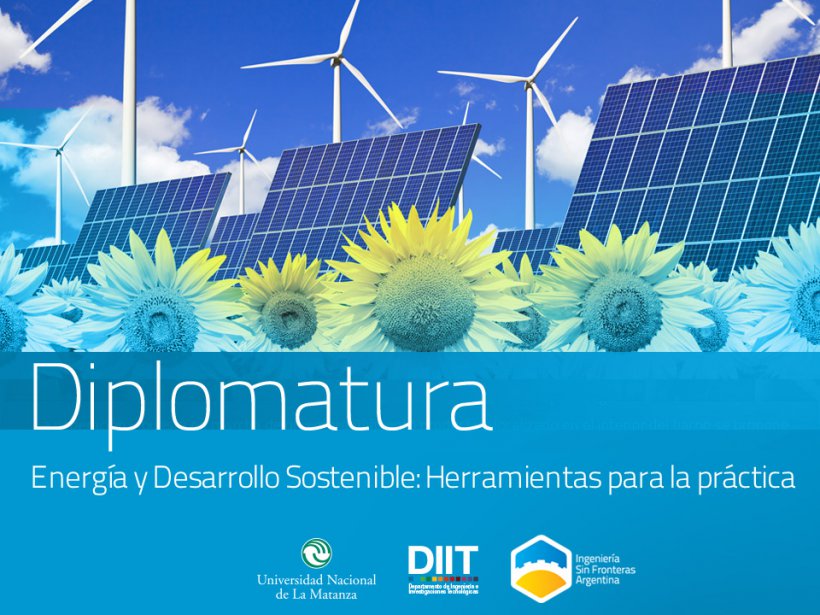
Certificate of Advanced Study at UNLaM Energy and Sustainable Development – Tools to put them into practice.
The course is organized by: The department of Engineering and Technological Research (DIIT) at National University of La Matanza (UNLaM) and Engineering Without Borders Argentina (EWB-Ar).
Actors involved: Colectando Sol, 500RPM, and stove makers Pablo and Ramiro.
GENERAL GOAL
The general goal is to contribute to the training of participants by providing them with the knowledge and tools related to renewable energies, within the conceptual framework of sustainable development. Also, the general goal is to contribute to a better understanding of the global, regional and mostly, local situation in relation to energy sources, uses, markers, trends and regulatory framework. This goal also involves providing a place to share experiences related to energy and sustainable development in their multiple dimensions and to open the university environment to all those community members interested in the field.
WHO IS THIS CERTIFICATE OF STUDY DIRECTED TO?
This certificate of study is directed to anyone interested in energy, especially in renewable energy systems, within the sustainable development framework.
REQUIREMENTS
This is a fee based course, and it is open to the community. A high school degree is required.
DURATION, MODALITY, LOCATION AND START DATE
Duration: 4 months.
Modality:
1.) Weekly in-person lessons with conceptual development and technologically based social projects’ analysis. These lessons include the participation of EWB-Ar: Wednesdays from 19:30 to 22:30.
2.) Monthly in-person workshops to apply the acquired knowledge: Saturdays from 10:00 to 18:00.
The course offers 86 hours of training.
Location: National University of La Matanza (UNlaM): Florencio Varela 1903, San Justo, Buenos Aires.
Start Date: June 29th 2016
FEE
Fee: $7,200 ARS / It can be paid in 4 installments of $1,800 ARS.
Students and graduates of the UNLaM: 15% discount


